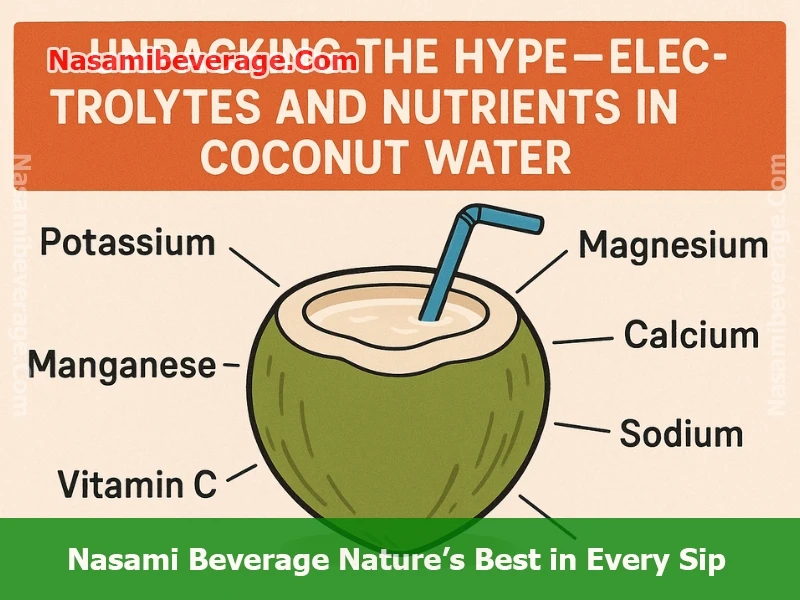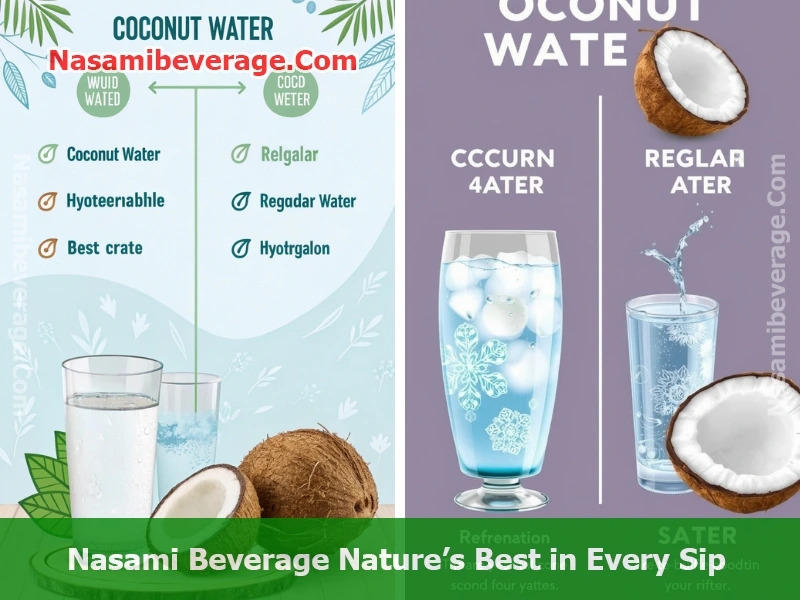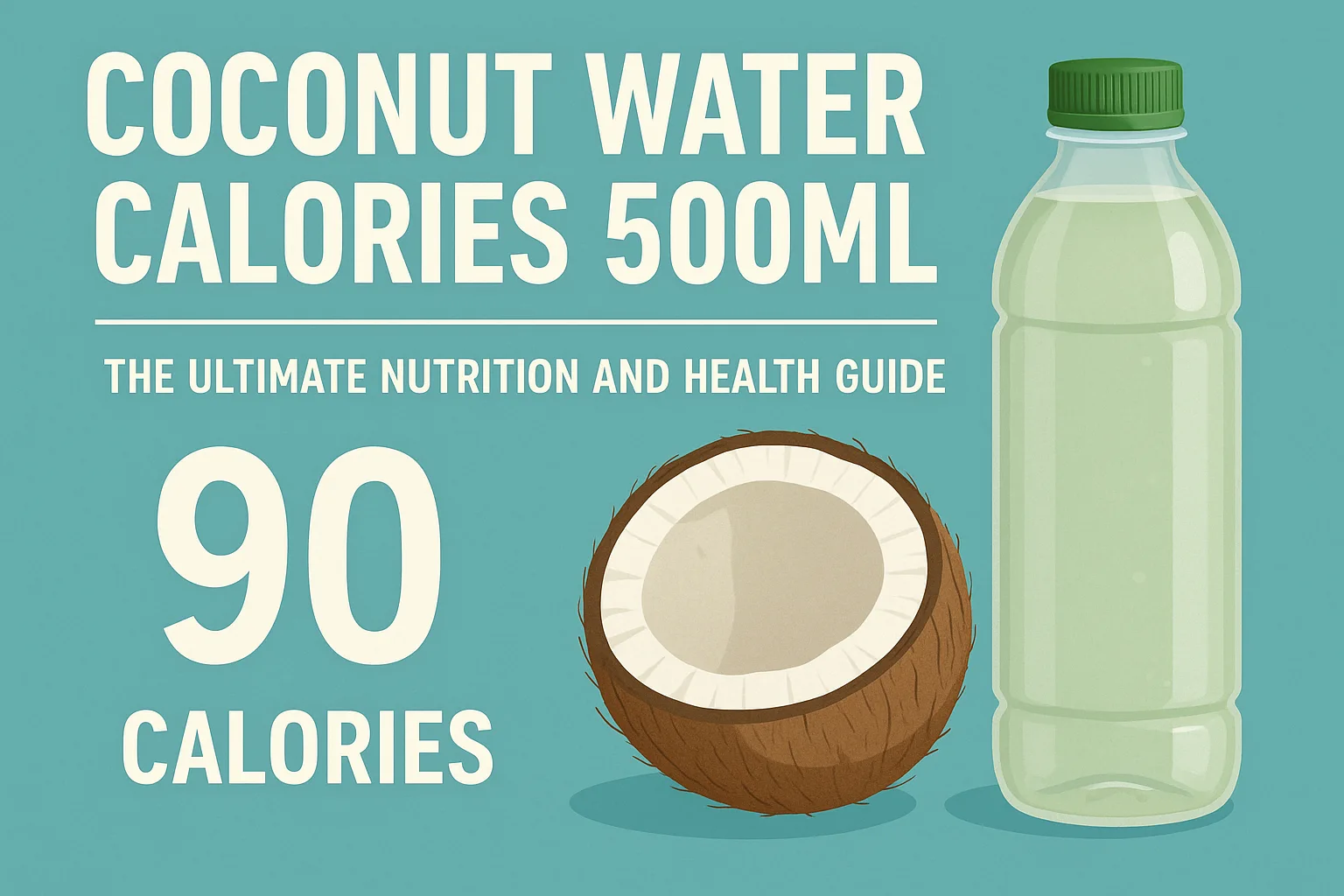In the ultimate hydration showdown, the key question is: Does coconut water hydrate better than water? While it’s packed with electrolytes, the scientific verdict for your daily needs is clear. We analyze the evidence to declare the undisputed champion for keeping you hydrated in everyday situations.
Coconut water vs. plain water – The ultimate hydration showdown
For the vast majority of your daily needs, the answer to the hydration question is clear. Let’s break down what the science says and deliver a final verdict for everyday situations.
What science says: Analyzing a drop of evidence
Hydration is the process of replacing water in the body. We lose water constantly through breathing, sweating, and urination, and maintaining balance is critical for every single bodily function. Plain water is the original, zero calorie, zero sugar, and universally accessible hydrator.

According to leading health authorities like the Mayo Clinic, there is no significant evidence to suggest that coconut water is more hydrating than water for regular, day to day activities. For the average person, thirst is a reliable indicator of when you need to drink.
And when that signal hits, water is perfectly effective at re-establishing fluid balance in your body. While some studies have explored its use in extreme exercise, the consensus for general hydration remains with water.
The verdict for everyday hydration
For staying hydrated at your desk, during a light walk, or throughout your daily routine, water is the undisputed champion. It’s effective, free, and doesn’t add any calories or sugar to your diet. Your body is exceptionally good at regulating its fluid needs, and water provides exactly what it’s asking for.
While coconut water certainly hydrates, its extra components aren’t necessary for these low-impact scenarios. Think of water as the essential foundation of your hydration house; everything else is just decoration.
Unpacking the hype – Electrolytes and nutrients in coconut water
The primary reason for coconut water’s claim to fame lies in its natural composition. The overall benefits of coconut water drinking stem from these minerals and electrolytes that play a key role in how our bodies function, especially during physical activity.
A natural source of key electrolytes
Electrolytes are minerals that carry an electric charge. They are vital for balancing fluid levels, enabling muscle contractions, and transmitting nerve signals. Coconut water is a natural source of several key electrolytes:

- Potassium: This is coconut water’s superstar ingredient. It contains significantly more potassium than most sports drinks. Potassium is crucial for maintaining proper fluid balance and heart function.
- Sodium: It contains a modest amount of sodium, an electrolyte lost in high concentrations through sweat.
- Magnesium and Calcium: Present in smaller amounts, these support muscle function and energy production.
Compared to commercial sports drinks like Gatorade or Powerade, coconut water has a more natural electrolyte profile but is notably lower in sodium.
Beyond the basics – Other nutritional perks
Beyond electrolytes, coconut water contains a small amount of carbohydrates (in the form of natural sugars), which provide a quick source of energy. It also offers antioxidants that help combat cellular damage. While it’s not as nutrient-dense as whole fruits, it is a healthier alternative to sugary sodas or juices.
Coconut water for athletes – Post-workout hero or overrated hype?
This is where the debate gets interesting. In the context of exercise and recovery, coconut water can be a valuable tool, but it’s not a universal solution for every athlete.
When to choose coconut water over a sports drink
Coconut water shines as a post-workout recovery drink after moderate exercise, typically sessions lasting 60 minutes or less. Understanding the best time to drink coconut water is key to maximizing its effects.

In these scenarios, you’ve lost fluids and some potassium through sweat, and coconut water does an excellent job of replenishing both. Its natural sugars provide a gentle energy boost to help your muscles start the recovery process.
However, for intense, long-duration exercise (90 minutes or more), especially in the heat, your body loses a significant amount of sodium. In these cases, a traditional sports drink scientifically formulated with higher sodium levels might be more effective at preventing cramps and promoting rapid rehydration.
Choosing wisely – Not all coconut waters are created equal
The surge in popularity has flooded the market, and quality varies. Many brands like Vita Coco and Zico offer pure options, but it’s crucial to read the label. Look for products that are “100% coconut water” and not “from concentrate.”
Avoid brands with added sugars or artificial flavors, as these can negate the health benefits. For those seeking premium quality, options like Harmless Harvest are often recommended.
Ultimately, coconut water is a fantastic natural beverage, but it’s not a magical hydrator that replaces water. Its strength lies in its ability to replenish electrolytes and provide a touch of energy, making it a great choice for specific, active situations.
Frequently asked questions
Can I drink coconut water every day instead of water?
While you can drink it daily, it shouldn’t completely replace water. Water is essential for baseline hydration without adding calories or sugar. Think of coconut water as a healthy supplement for when you need an electrolyte boost.
Is coconut water good for rehydration when I’m sick?
Yes, it can be very helpful. If you’re losing fluids due to fever, diarrhea, or vomiting, coconut water can help replenish both fluids and lost electrolytes, particularly potassium.
Does coconut water have a lot of sugar?
Unsweetened, 100% natural coconut water contains natural sugars, typically around 5-9 grams per serving. This is less than most fruit juices and sodas but more than water. Always check the label for “added sugars.”
What’s the difference between coconut water and coconut milk?
Coconut water is the clear liquid found inside young, green coconuts. Coconut milk is a processed beverage made from the grated white flesh of a mature brown coconut, making it much higher in fat and calories.
Will drinking coconut water help with muscle cramps?
It might. Muscle cramps can sometimes be caused by dehydration or an imbalance of electrolytes like potassium and magnesium, both of which are found in coconut water. It can be a helpful part of a cramp-prevention strategy for active individuals.
Navigating the world of hydration doesn’t have to be complex. While pure water is the undisputed champion for your daily routine, coconut water truly shines as a natural way to replenish electrolytes after a good workout. The real takeaway is to listen to what your body needs in the moment. Making a mindful choice, whether it’s simple H2O or nutrient-rich coconut water, is a powerful form of self-care.
Nasami Beverage curious to hear what works for you. What’s your personal go-to for post-workout recovery? Share your favorites in the comments below!



